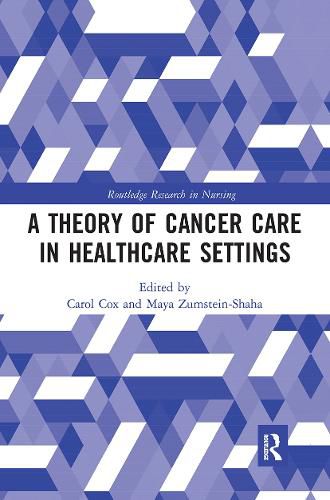Readings Newsletter
Become a Readings Member to make your shopping experience even easier.
Sign in or sign up for free!
You’re not far away from qualifying for FREE standard shipping within Australia
You’ve qualified for FREE standard shipping within Australia
The cart is loading…






This book provides healthcare professionals with a practice theory for the care and management of patients who have been diagnosed with cancer. It explores what patients experience and how healthcare professionals can assist them in dealing with their uncertainty and fear as well as planning for the future.
Unique to the book is its explication of the emerging theory, ‘The Omnipresence of Cancer’, which is set in the context of a discussion of earlier theories also concerned with cancer care. Chapters demonstrate how ‘The Omnipresence of Cancer’ has been developed, validated through research and being further tested in relation to cancer care. In particular, a chapter on philosophical reflections using theory to produce knowledge for practice is included. Each chapter provides essential background, a synthesis of the current state of knowledge, and practice examples associated with cancer care. The combination of theoretical reflection and practice examples is designed to promote comprehension and guidance on implementation of the theory, as well as recommendations for practice.
This book will be of significant interest to healthcare students and professionals working in the field of cancer care and oncology, particularly healthcare professionals working in advanced practice roles and nurse educators. It is also anticipated that professionals working in pastoral care, occupational therapy, social work and radiography will be interested in this book.
$9.00 standard shipping within Australia
FREE standard shipping within Australia for orders over $100.00
Express & International shipping calculated at checkout
This book provides healthcare professionals with a practice theory for the care and management of patients who have been diagnosed with cancer. It explores what patients experience and how healthcare professionals can assist them in dealing with their uncertainty and fear as well as planning for the future.
Unique to the book is its explication of the emerging theory, ‘The Omnipresence of Cancer’, which is set in the context of a discussion of earlier theories also concerned with cancer care. Chapters demonstrate how ‘The Omnipresence of Cancer’ has been developed, validated through research and being further tested in relation to cancer care. In particular, a chapter on philosophical reflections using theory to produce knowledge for practice is included. Each chapter provides essential background, a synthesis of the current state of knowledge, and practice examples associated with cancer care. The combination of theoretical reflection and practice examples is designed to promote comprehension and guidance on implementation of the theory, as well as recommendations for practice.
This book will be of significant interest to healthcare students and professionals working in the field of cancer care and oncology, particularly healthcare professionals working in advanced practice roles and nurse educators. It is also anticipated that professionals working in pastoral care, occupational therapy, social work and radiography will be interested in this book.